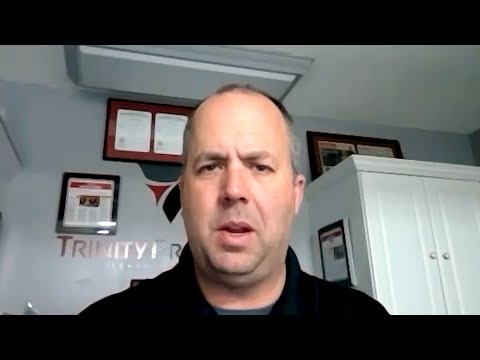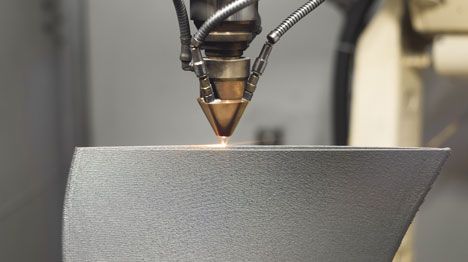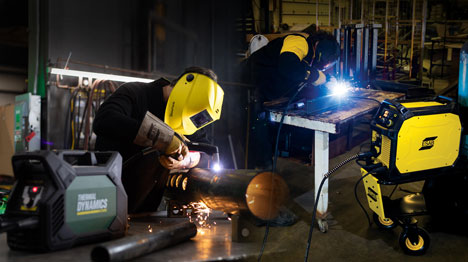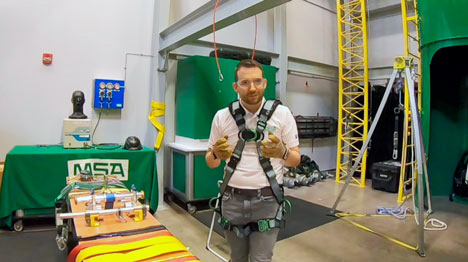3 Keys to Attracting and Retaining Skilled Workers
Attracting and retaining skilled workers is not easy in a labor shortage, but these three manufacturers are doing it right. Discover their keys to success.
Attracting and retaining skilled workers is not easy in a labor shortage, but these three manufacturers are doing it right. Discover their keys to success.
It’s not easy for manufacturers to attract and retain machinists. This was true well before the COVID-19 shutdowns and associated disruptions, and the situation is even more challenging in the current environment. Three manufacturers who have built strong teams in the face of labor shortages share their best practices.
According to a 2021 report from the National Association of Manufacturers (NAM), 77 percent of manufacturers say they will have ongoing difficulties in attracting and retaining workers for the foreseeable future. The association says, “While the manufacturing industry recouped 63 percent of jobs lost during the pandemic, the remaining 570,000 had not been added back by the end of 2020, despite a near-record number of job openings in the sector.”
There is no reason to accept the gloom and doom, however, if you follow the lead of three very different manufacturing companies that have enjoyed significant growth since their founding. Although their tactics on finding, training and keeping employees vary, the businesses share a common theme of people before profits. Here’s what their leaders had to say.
Jonathan Dysinger has farming in his blood. His parents once operated a small-scale vegetable production facility in rural Tennessee, and ever since he was a child Dysinger has been deeply involved in agriculture. Blessed with a strong mechanical aptitude and an “innovative outlook on life,” he taught himself to weld at an early age and often found himself looking for ways to make farm life easier.
At 17, he developed the first of many tools to do just that: a handheld device for harvesting leaf lettuce. “Most small farmers have to crawl on their hands and knees with a knife and can harvest maybe 40 pounds of greens per hour,” Dysinger says. “With our Quick-cut Greens Harvester, they can produce five times that amount and do it standing up. It was a significant improvement.”

Dysinger built a business on improvements such as these, and since 2012 he has been the owner and chief innovator at Farmers Friend in Centerville, Tennessee, a manufacturer “dedicated to equip, educate and inspire growers to change the world through regenerative agriculture.” The small company now has dozens of similar timesaving products; performs CNC machining, welding, assembly and electronics development; and recently moved into a new 40,000-square-foot facility. Farmers Friend has 36 full-time employees, whom Dysinger calls “a really talented, really great team that’s taking our business to the next level.”
Dysinger says it’s hard to pinpoint any specific hiring or employment practices to develop such a team. He did say, though, that passion and integrity play a huge role. “People want more from work than a weekly paycheck,” he says. “There is a lot of value in having a mission for your company and for your employees, something that helps your team feel like they’re contributing to a better world. But you also need values. For us, that means amazing customer service, incredible products and above all, respect for others. Those are the pillars of our company.”
Watch this video: How Has Manufacturing Changed Your Life?
In 2014, David May and several others acquired a small mom and pop machine shop as a starting point for their new business. He’s now the president and co-founder of Trinity Precision, a 70-person aerospace parts manufacturer in Wichita, Kansas, that specializes in complex machining and assembly of aluminum and titanium components for the likes of Boeing, Northrop Grumman, Gulfstream and Textron Aviation.
May and the rest of Trinity’s management follow a few guiding lights when operating their business. “Our corporate motto is people, process and principle,” he says. “As such, we’re a very people-focused organization. It’s a cultural thing, one guided by Christian principles with a focus on how we can improve the world around us, one relationship at a time, and help everyone foster a sense of dignity.”

May admits that Trinity is fortunate that Wichita and the surrounding area is a hub for aerospace manufacturing, providing plenty of qualified candidates from which to choose. It also increases competition, however, so Trinity provides a robust pay and benefits package. “There’s been a lot of effort put into development and training programs throughout the area,” May says. “WSU Tech is a great example of that, where private and public joint ventures working together have focused on ways to create a pipeline of skilled labor and make it attractive for people to enter into manufacturing.”
Trinity works hard to dispel the notion that manufacturing is a dirty trade. “We recently had a customer visit scheduled for a Wednesday, and they dropped in unexpectedly Tuesday,” May says. “It wasn’t a problem, because we don’t have to clean up for our customers—this is how we are all the time. I think everyone appreciates it when you can work in a clean environment. It gives them a lot more pride in the company. But everyone here also sees that we’re continuing to invest in the company. They know there’s an opportunity to advance, and be part of a family, if you will. Because of that, there’s a tremendous amount of loyalty both ways.”
Read more: Attracting Millennials to Manufacturing
Since 2011, TGS Precision president and founder Bryan Schmidt has had a goal of vertical integration and the development of a company equally adept at CNC machining, precision sheet metal fabrication, powder coating, assembly and engineering. As a result, the Lenoir City, Tennessee, manufacturer has seen rapid growth over the years and now boasts a workforce of 200 employees at a 130,000-square-foot facility.
Like most companies, TGS has struggled to find skilled workers, a situation the pandemic has only exacerbated. Schmidt has responded by being more flexible in how he attracts new employees and keeps them.
TGS has recruiters on staff to seek high-quality candidates from all over the country and offers “find a friend” hiring bonuses for referrals from current employees. Schmidt notes that finding good workers becomes much easier when you have a strong corporate culture, a nice facility with quality equipment, and continuous investment in the business and its people.

The company takes care of its employees, encouraging them to stay home if they feel sick or have personal issues to deal with. “Inside our facility, you’re not just an employee. You’re part of our family,” he says. “That’s our culture, and it’s something we take great pride in. We’re here for everybody inside this building.”
Schmidt says TGS does a nice job of onboarding new employees and showing them what a future there might look like. “All of our guidelines are spelled out clearly in our company handbook,” he says. “After that, we try hard to help our people advance and grow their careers. We don’t want employees that stay for six months. We want employees that are going to retire here, so we show them the path forward. If they follow it and can accept more responsibility, then we can continue to grow the company and pay them more. Everybody wins.”




